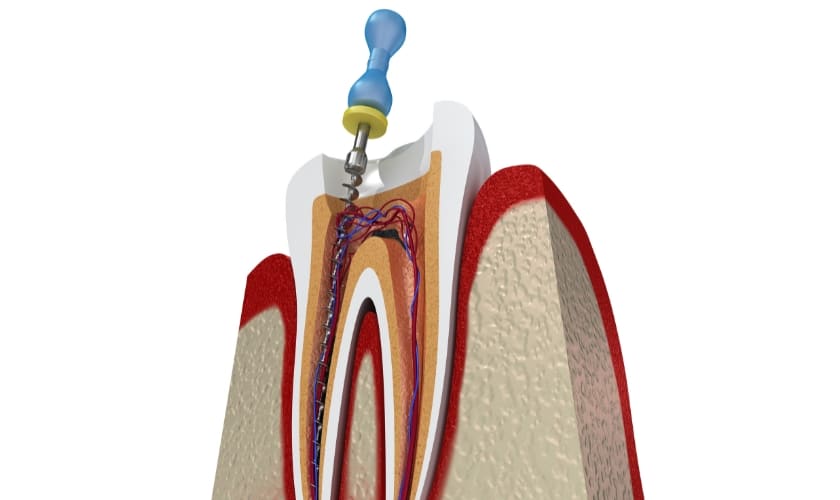Toothaches are no fun. But when the pain originates from the deep inner core of your tooth, a root canal might be recommended. This procedure sounds daunting, but the good news is, root canal therapy boasts a high success rate, potentially saving your tooth and restoring your smile. So, how successful are root canals exactly? Let’s delve into the world of root canals, exploring success rates and factors that influence them.
Understanding Root Canals: A Lifeline for Infected Teeth
The center of your tooth, called the pulp, houses nerves, blood vessels, and connective tissue. When bacteria infiltrate the pulp due to deep decay, cracks, or gum disease, infection ensues. This infection can cause immense pain, swelling, and even bone loss around the tooth. Here’s where root canal therapy steps in:
- Removing the Infection: During the procedure, the dentist numbs the area and creates a small opening in the tooth crown. They then remove the infected pulp, including nerves and blood vessels.
- Cleaning and Shaping: The canals within the tooth root, which once housed the pulp, are meticulously cleaned and disinfected to eliminate any lingering bacteria.
- Sealing the Deal: The canals are filled with a special material to prevent re-infection. Finally, the dentist places a temporary or permanent restoration on the tooth to protect it and restore functionality.
Success Rates: Numbers Speak Volumes
The success rate of root canal therapy is generally high, with studies reporting a range of 80% to 95%. This means a significant majority of treated teeth remain functional and pain-free for many years. Here’s a breakdown of factors influencing success rates:
- Severity of Infection: Early intervention, when the infection is contained within the tooth, leads to better long-term outcomes. Extensive infections or those reaching the jawbone can decrease success rates.
- Skill of the Dentist: An experienced dentist with expertise in root canal procedures can navigate complex root canals and ensure thorough cleaning and sealing, maximizing success.
- Complexity of the Tooth: Molars with multiple canals and roots are inherently more intricate to treat compared to simpler front teeth. This complexity can slightly affect the success rate.
- Post-Treatment Care: Following the dentist’s instructions for proper oral hygiene and avoiding excessive pressure on the treated tooth are crucial for long-term success.
Beyond the Numbers: Factors to Consider
While success rates are encouraging, it’s important to understand that root canals aren’t foolproof. Here are some additional factors to consider:
- Retreatment: In a small percentage of cases (around 5-10%), root canals may require retreatment due to factors like missed canals, new infections, or inadequate sealing.
- Long-Term Maintenance: Treated teeth are more brittle and susceptible to fractures. Proper care and regular dental checkups are essential for maintaining a healthy treated tooth.
While root canals offer a chance to save your natural tooth, there might be situations where extraction is recommended. This could be due to severe damage, extensive bone loss, or failed root canal attempts.
Knowing the effectiveness of root canal therapy can help you make informed choices about your dental health. Despite its high success rate, this procedure may not be suitable for everyone. It is crucial to speak with your dentist and grasp the key factors that impact its success. Keep in mind that prompt action and good maintenance are essential for a successful root canal and a radiant smile. For expert advice on root canal therapy, please visit our dental office.





